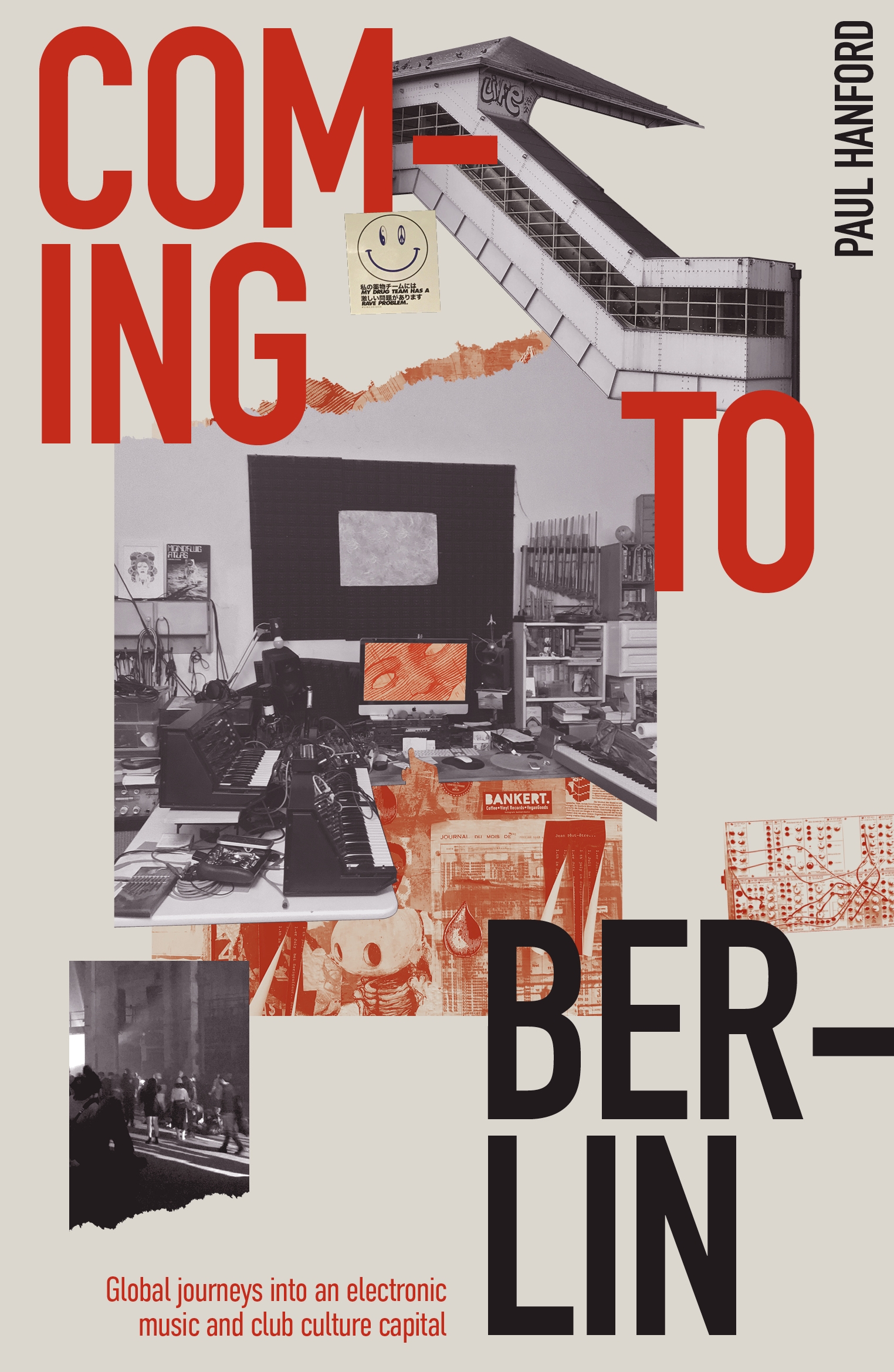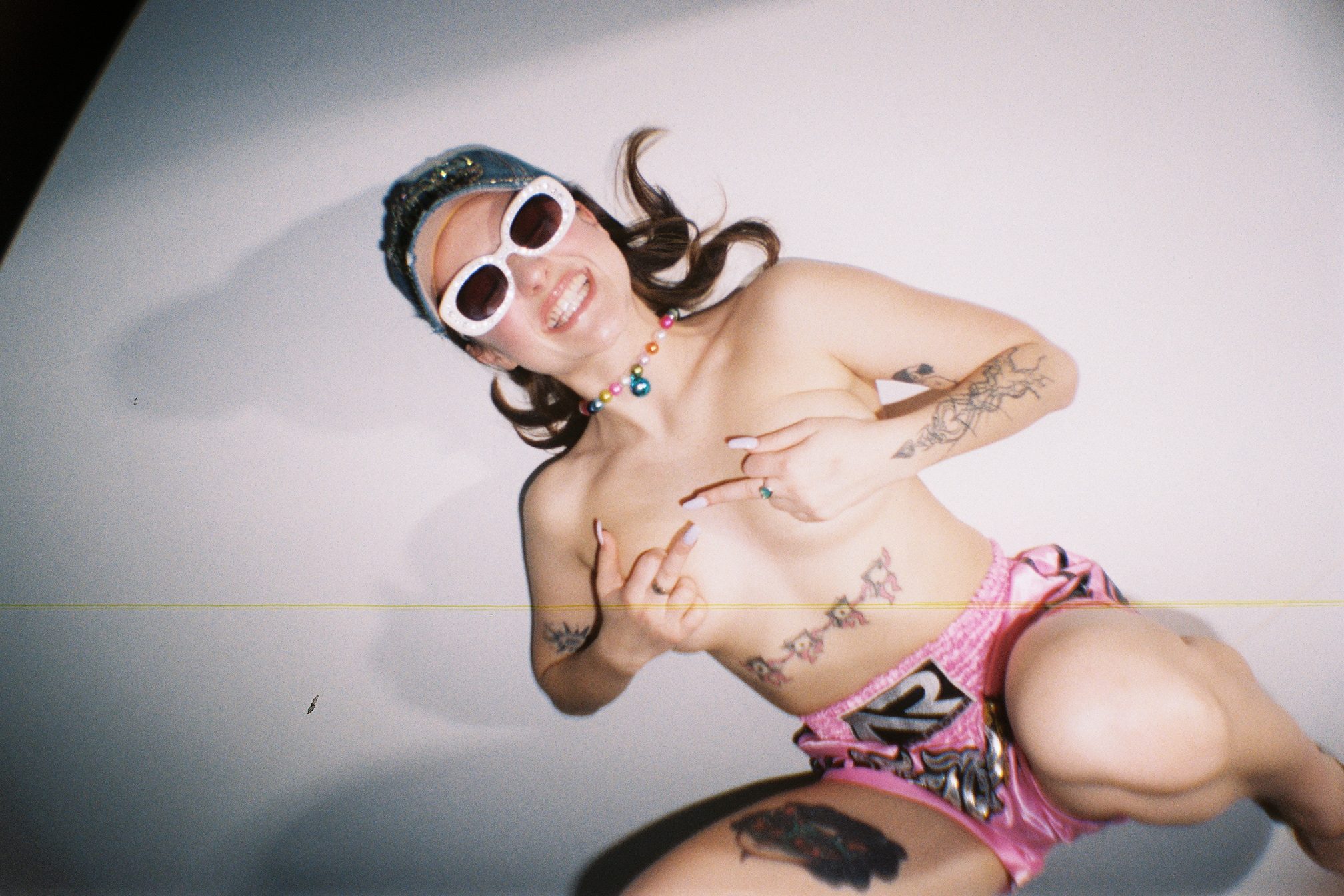 Features
Features
“It’s fun when people get pissed off at my music”: DJ Fuckoff won't change for you
In an extract from his new book Coming To Berlin, Paul Hanford talks to DJ Fuckoff about making sexually liberated music, loving afterparties, and why the unsolicited opinions of men won't stop her expressing herself
Coming To Berlin, out now on Velocity Press, is the first up to date, post-pandemic, no-borders era book to cover Berlin’s role as an electronic music and cultural capital, breaking the tradition of Berlin’s perception as techno ground zero and showing the diversity and richness that make up the city. In the extract below, author Paul Hanford speaks to the provocative DJ Fuckoff
“When I move, people are definitely going to tell I come from Neukölln,” Zoe had said the last time we met, her pink manicures glistening in the sun as she drank from a mug of Heiße Schokolade. It was July and Zoe was just beginning to travel as DJ Fuckoff. Sets in Hamburg and Kyiv and Warsaw that month and then back home to the apartment she was living in at the time, just down the hill off noisy, chaotic Karl-Marx Straße.
Before the pandemic, she’d barely played out in Berlin. In her live sets on streaming platform HÖR, during and just after the first lockdown, I recognised the flux of influences and values of the Neukölln I lived in. It was mid-summer and we sat on a bench outside the Leutchstoffe, a café deep in the heart of this borough that sits parallel to a ravine where the loop of the ring train passes deep below. The staff are super friendly, young. In the bathroom, there are free tampons in a pasta jar and a tag above the door reads Klein Platz für AFD. No Place For AFD: the far-right political party. Antifaschismus. From an angle like this, at least, Neukölln feels raw and inclusive. Even after a decade-plus of absorbing the overspill of gentrification from Kreuzberg, this borough takes on the appearance of a kind of last stand. If something progressive is happening, and if it’s to have any kind of swell to it, it’ll most likely be somewhere here south of the canal.
She did indeed feel moulded into the scenery. Then, as we were sat that day, she told me she was moving to uptown upmarket Prenzlauer Berg, a district whose post-reunification past as a frontline for anarchists, squatters, free thinkers and ravers from both the former DDR and the economically blessed West has slowly dipped into a sea of gentrification.
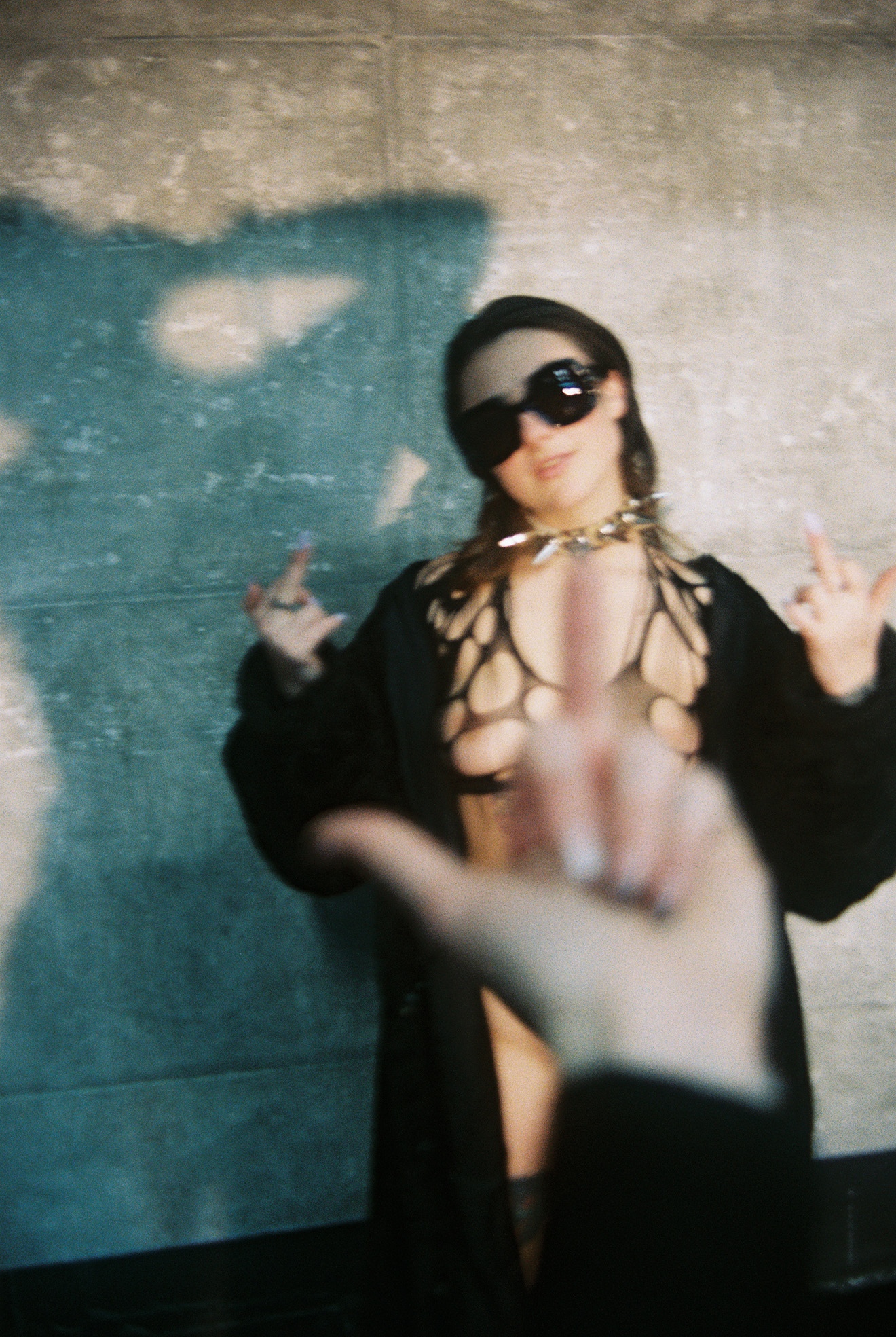
“Maybe I change my name to something polite and have USBs hanging off my Louis Vuitton,” she laughed. We both have quite loud voices. “I could open a children’s clothing store. All the sexual tension has been released. DJ Fuckoff is over.” The sexual tension she refers to is at the core of her sound, where elements of techno, happy hardcore, psytrance, juke and breakbeat are galvanised through an R&B swagger and upfrontness towards sexuality. In ‘(B.I.M.B) Bills In My Booty’, posted on SoundCloud that week in July, she raps: “I want 50,000 dollar bills in my booty/hold the phone/All you boys trynna taste this pussy/whatchoo want?” Or then there’s the robotised mantra of ‘Lick It’: “Lick it/Suck it/Feel it then just fuck it.”
Read this next: Sex music: QRTR's blend of emotion and groove is stimulating dancefloors and beyond
She works at a breakneck speed on productions, during one recording session Ableton-ing through 10 to 20 ideas, spanning tempos, working through trance to techno to chill before she lands on the idea that she’ll climb into. “I think it’s my ADHD brain,” she says. “I can’t settle on one thing. And then the last idea is the idea that I stick with but then even within the track itself, I will create different tracks.” She asks me if this is the same kind of process I go through with writing. I say I can’t speak for anyone else but, for me, yes, sometimes. We both agree that the ideas you don’t end up pursuing have the same appeal as someone you don’t want to talk to at a party.
But that was in the summer, and a humid July afternoon has now become a brisk November lunchtime. I turn left onto Oderberger Straße, up amongst the help yoga mats and English language kitas of Prenzlauer Berg. Bonanza Coffee Heroes is on one side, and on the other, there’s Zoe locking up her bike. She waves and crosses the road. I ask how her weekend went. “Poland was amazing but the journey back was rough,” she says. Yesterday morning, after de-tangling herself from the afterparty, tired but exhilarated, USBs, overnight bag, cash fee, she makes the train in Krakow, destination Berlin Hauptbahnhof. A menagerie of beats and moments with people she’s met over the weekend spinning around her head, some lingering, some disintegrating like smoke, and then somewhere around the Polish–German border her train is grounded. On the tracks, hours pass, the comedown is overtaking, it’s real, the comedown express to Hauptbahnhof is grounded and there’s no news of when it’ll move again. “I very nearly got out and ordered an Uber; it would have cost me a hundred euros,” she tells me. Immediately it hits me. “Of course,” I say, “it’s Tuesday.”
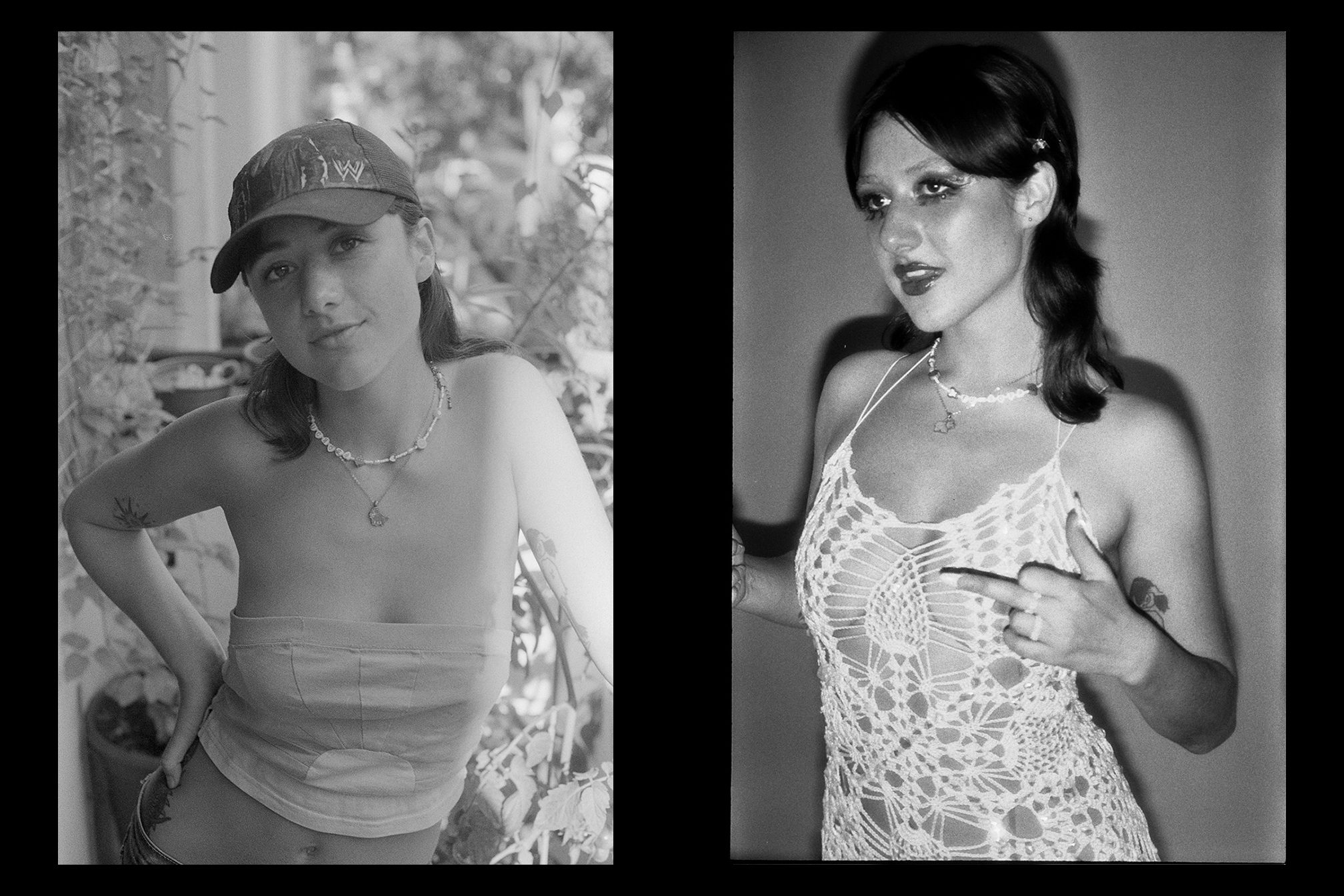
Today, Zoe’s tucked into a wool hat and gloves; she has no make-up, her vibe is keep it easy and grab a pastry. Since wet met in the summer, her bookings have grown. DJing nearly every weekend, sometimes at parties held within pandemic regulations in Berlin, but also now across Germany, in Cologne, in Hamburg and across Europe. Then, the afterparty, which, she says, she can’t resist. “And suddenly,” she says, “I’m like, ‘Hey, catch my train. Gotta go home.’ And I have a two-day, three-day recovery period.” Which I’ve just realised we’re right in the middle of. As we push open the doors into the warm coffee shop, I suddenly feel guilty that I’ve dragged her out mid-DJ-hibernation. “I was asleep till 12:30 and now I actually feel really good,” she says with the breeze of someone living a life of exactly what they’ve asked the universe for. The travel. The food. The cities. Meeting interesting people and railing across Europe with a memory stick passport and a gift for creating energy. She describes it as an overwhelming happiness. As she travels, there are moments of beauty: the other week, playing in an abandoned sanitarium in the Carpathian Mountains where, behind the DJ booth, a glass window overlooked a forest and she saw the sun rising through the trees. In the castle she stayed in, photographs of the previous owners, their staff, photographs crawling backwards through history. “But there’s been chaotic stuff too.” A dancefloor culture re-emerging from its pause can be clumsy like an underused muscle. Recently, a promoter’s friend found the smoke machine. “He was really trigger happy,” she recalls. “People in the crowd were choking, and one of the girls was like, ’The smoke, it’s too much, it’s too much, no one in the crowd can breathe.’ And I fucking looked at the guy and he’s just sitting under the booth, smashing on the smoke button and he couldn’t see anything, oblivious.”
Read this next: How to have the perfect 24 hours in Berlin
All of the beauty and all of the chaos each weekend and I’m beginning to understand how the calm of Prenzlauer Berg can be so welcome. “Oh my God, I really love it,” Zoe says as we take seats along the roadside. “I love Neukölln but I didn’t realise how much I needed a change, just to be somewhere more quiet. Living on Karl-Marx-Straße, as I was for most of my time since arriving in Berlin, it’s not really possible. I would get off the train and then it’s straight into all this lalalala noise. Also...” – she pauses and leans in – “I realise that I’m wearing black all the time now and I never wore black before Berlin. Ever.” It’s at this moment it occurs to me, from conversations we’ve had where Zoe’s spoken about her parents, about how in infancy she grew up around psytrance and then, even in that moment that sparked those first thoughts about coming to Berlin, which could be traced back to one night dancing on a beach in Goa, could it be that aside from the clothing, the bling and the hustle, that underneath it all, she’s a hippy? “My parents, they were hippies, but a bit bogan too, you know this word, right?” Zoe says.
“I was really young, but my dad had a record store on Karangahape Road. The most famous street in Auckland, New Zealand for clubs; it was a street where you could feel free and liberated. K Road, they call it. Everyone was very different there,” Zoe recalls, the steam from our drinks evaporating into cold air. “I grew up at his record store a lot, walking down the street, there were sex clubs, I saw drag queens who’d hang out, a lot of alternative looking people, a lot of hippies.” At school, Zoe struggled to connect with other children. “No one at school had any kind of exposure to the stuff I did; their parents had completely different jobs, mostly office jobs, they didn’t know anything about electronic music and that was my whole world. The other kids would create problems about things that didn’t seem important to me. I was like, ‘Why do you care about that?’ It was all lots of drama. I was always thinking, ‘Hey, these kids are weird, or maybe I’m weird!’”
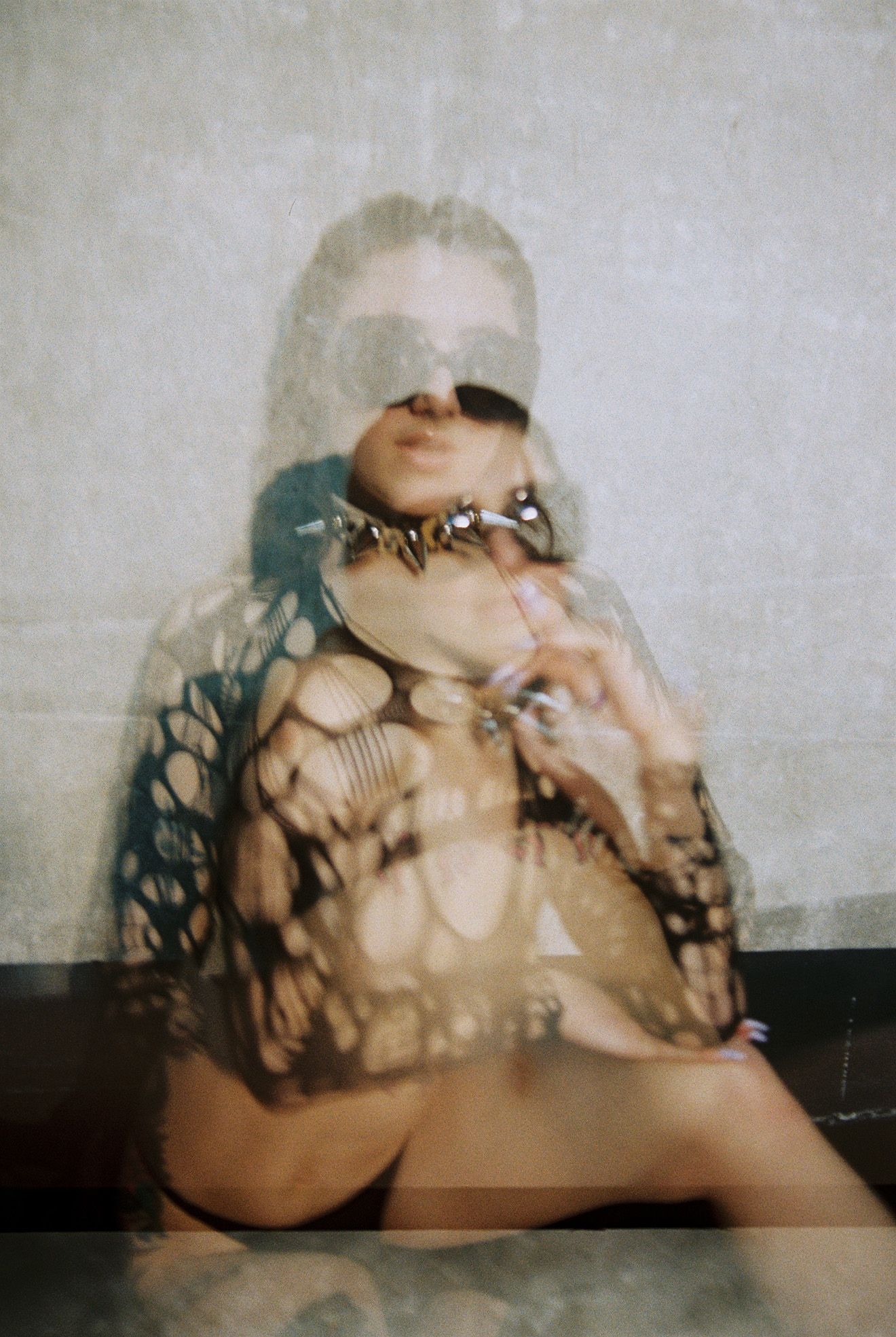
“When I was 18, I was still in high school and I think only maybe three people know this. My mom definitely doesn’t know. My sister doesn’t know and I guess this also makes sense with my DJ Fuckoff stuff but I started working as a waitress in a strip club. I was doing this without anyone knowing and it was my way of being, ‘Okay, fuck everyone, fuck everything.’ I want to explore my own shit, I wanted to see the world and I was so bored with the stuff that my friends were doing in high school, all the drama, and the most extreme thing that I could probably do was go start working in a strip club. It opened me up a lot to what I wanted to do in the coming years, which is now DJ Fuckoff.”
“At first, it was just my expression,” she told me. “And yeah, I wanna talk about dicks, I wanna talk about sex, I wanna talk about whatever the fuck I wanna talk about, and people don’t usually like that, especially if it’s coming from a woman.”
Read this next: Liberation from society: Gegen offers Berlin's queer community a place to be free
“I had a person message me and engage in a conversation, telling me how and who I should be and what I should do as DJ Fuckoff, and they were telling me to stop sexualising myself,” Zoe recalls. “They were just saying how I could be better than using sex to sell my music. I don’t get why he felt he had this kind of authority. I wouldn’t message anyone telling them how to be or what to do. I think it came from a sense of maybe thinking they were helping me, but DJ Fuckoff is my expression.” I asked her if she thinks this same guy would go and send a message to a man who writes equivalent sexual lyrics. “No way,” she spits. “It just wouldn’t happen. I don’t think that’s ever happened. I don’t imagine any man has ever said to another man to stop talking about all this sexual stuff. It’s just crazy how it’s just a whole different idea when women do it, and why they do it. People follow me because they like my music; maybe some people like the sexy posts too but this is all part of it. This is what makes me feel good. I want people to feel empowered and feel good, especially women. I want them to feel fuckin’ hot, sexy, like they can do it too. This is how I go through all my emotions and failings, and if it’s sexual, it is the way it is.”
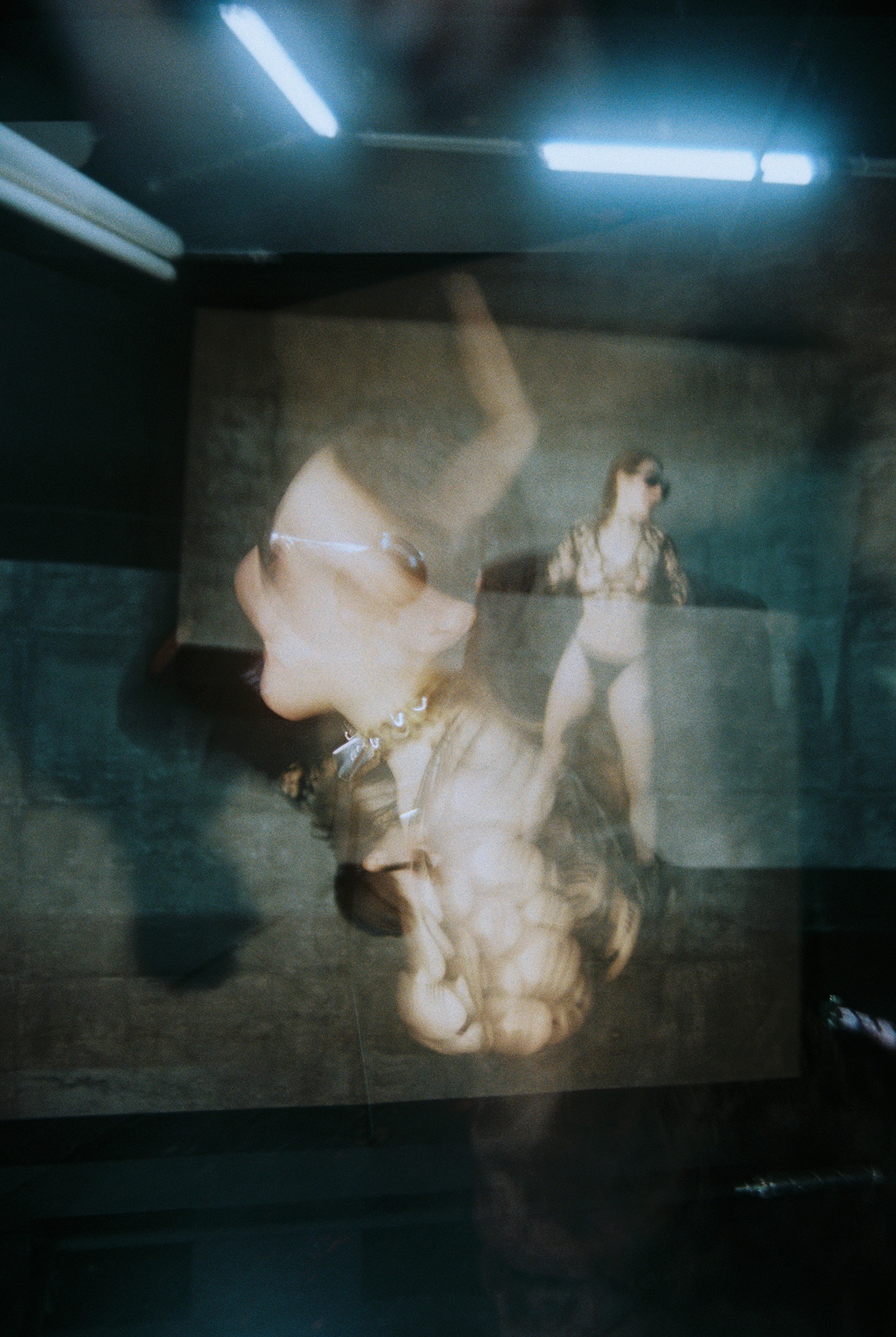
She told me how she transformed this online situation into material, writing the track ‘Death By Pussy’: “Death to all these people by pussy.” Zoe says that she feels supported by the people who attend nights, fellow DJs and promoters, and people who wish to dance and make music in a safe environment, but online, this can become a different situation. “I did a product review of some new CDJs and in the comments section, a lot of guys were saying I had a stupid name; they were saying things like ‘Good luck getting booked but nice review.’ It’s so pointless but with the name DJ Fuckoff it gives you everything you need to know. It gives me the power to be comfortable and not care about this kind of stuff, and it also gives me the power to know I don’t have to respond because everything is right in front of you. It’s like, ‘You’ve been warned! I told you!’” I ask Zoe if there’s an element of fun that comes out of courting potential controversy. “It’s always fun when people get pissed off at my music; I am pushing buttons. Art has a role in being provocative, and yes, I feel what I’m doing is provocative. I like to make people get out of their comfort zone and I think it’s important to be pushing this instead of how society is telling women how to act, what they should wear. I want to fucking break this, I want to push this, I want to test this. And if this is challenging for some people, maybe they’re getting pushed, but then also maybe they think, actually, maybe this isn’t so bad, maybe she can express herself like this, just as men do if they want.”
Paul Hanford is a freelance writer and the author of Coming To Berlin, buy it here
